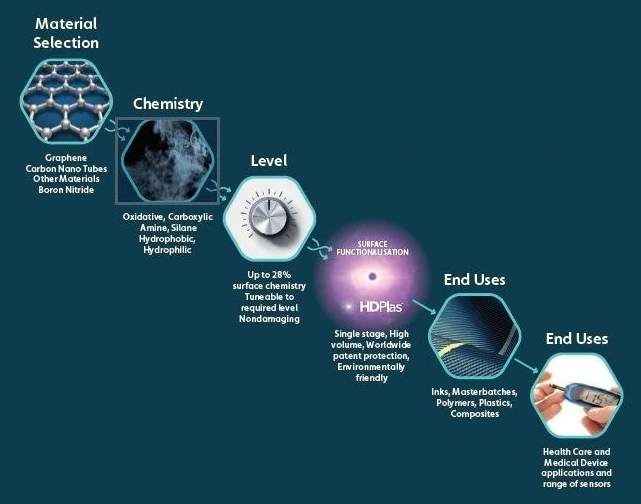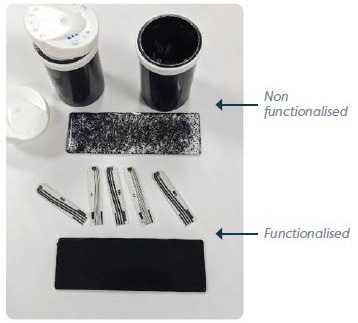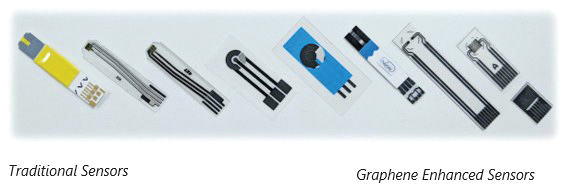From locating the appropriate material for the particular application to developing commercialized products, Haydale is ready to help with end-to-end assistance.

Image Credit: Haydale Limited
Biosensors
Chronic diseases like diabetes have significantly increased in prevalence worldwide. The need for biosensors has grown along with the need for home healthcare equipment.
Traditionally, carbon and metallic materials have been utilized in biosensors for measuring uric acid and blood glucose.
Haydale’s biomedical inks decrease the usage of metallics, which also satisfy the expanding demand for inexpensive, high-volume, flexible, lightweight, and non-intrusive healthcare products.
The inks improve electrical conductivity and enzyme immobilization by adding extra chemistries and cutting-edge materials like graphene. The manufacture and disposal of medical equipment have a substantial negative influence on the environment, which is also reduced by Haydale’s method.

 Download the Brochure for More Information
Download the Brochure for More Information
Creation
Haydale is developing the next wave of novel materials for creative medical solutions.
The unique HDPlas functionalization method from Haydale is used to produce biomedical inks. The special functional inks provide improved qualities, including:
- Enhanced consistency
- Enhanced conductivity
- Better product stability
- Enhanced electrochemical performance
- Cost-effective

Image Credit: Haydale Limited
Benefits
- Better electrical conductivity using the HDPlas technology, which encourages more sensitive and rapid charge transmission
- Conductive inks based on carbon that have been functionalized and have a surface resistance of less than 8 Ω/sq, normalized to 25.4 µm
- A less hydrophilic product is produced via surface functionalization, eliminating moisture, surface oxygen, and polar groups.
- Adaptable for uses such as renal disease diagnosis, uric acid testing, and glucose sensing
- Variable viscosity to enhance printability in large-scale manufacturing
- High chemical stability and tunable hydrophilicity
- Flexible conductive inks for printing and flexible coating systems
- Heightened flexibility—it can sustain 180º without shattering
- High-speed printing abilities such as flexographic
- Low C/V ratios during prolonged production volume in-line testing
Applications
Glucose management
Self-monitoring of blood glucose (SMBG) levels is made more accessible with glucose test strips developed using Haydale’s conductive ink technologies. These conductive materials serve as the main element for glucose sensing functionality, directly influencing the patient's well-being.
Uric acid
A variety of inks are available from Haydale for uric acid testing. These inks detect minute electrochemical changes in uric acid, similar to blood glucose sensors. They can be used, for instance, to identify gout.
Biomarkers
The biosensor inks from Haydale have been developed and optimized to measure kidney disease. The biosensor strips from Haydale are compatible with traditional glassy carbon sensors and can offer strong detection levels. The disease biomarker inks can identify renal disease by measuring blood microRNA levels.
These are but a few instances of applications. Haydale uses a variety of off-the-shelf materials or unique solutions to tailor the ink technology to the users' needs.

Image Credit: Haydale Limited

 Download the Brochure for More Information
Download the Brochure for More Information
Sensing material change
Haydale offers a selection of customizable inks for various uses in the sensors industry.
Haydale provides end-to-end support, from locating the appropriate materials for the specific purpose to developing a product that can be sold.

Image Credit: Haydale Limited